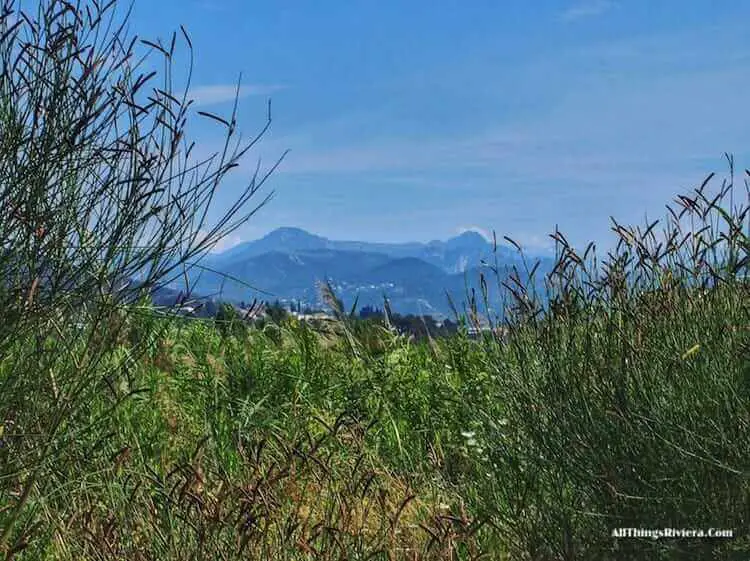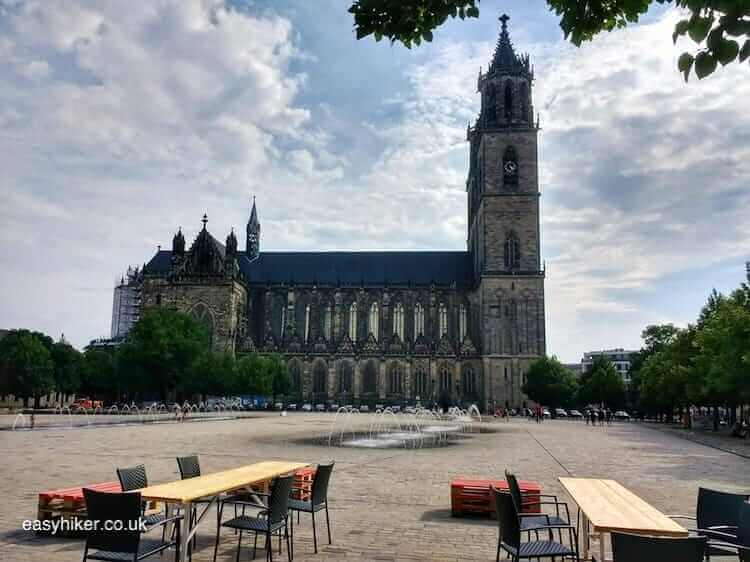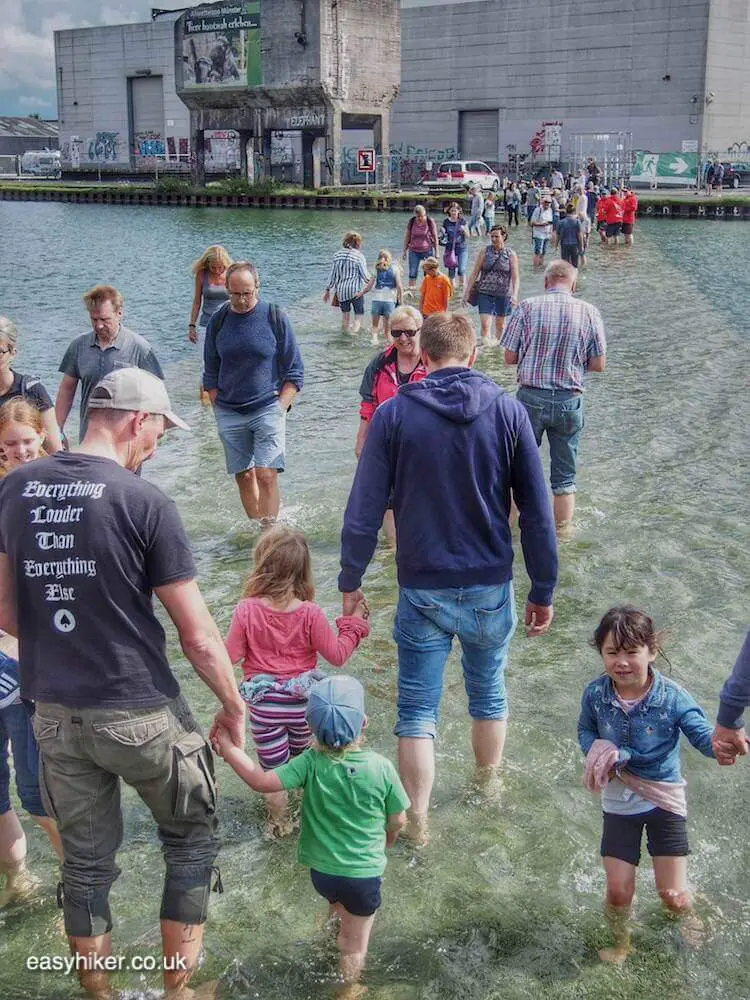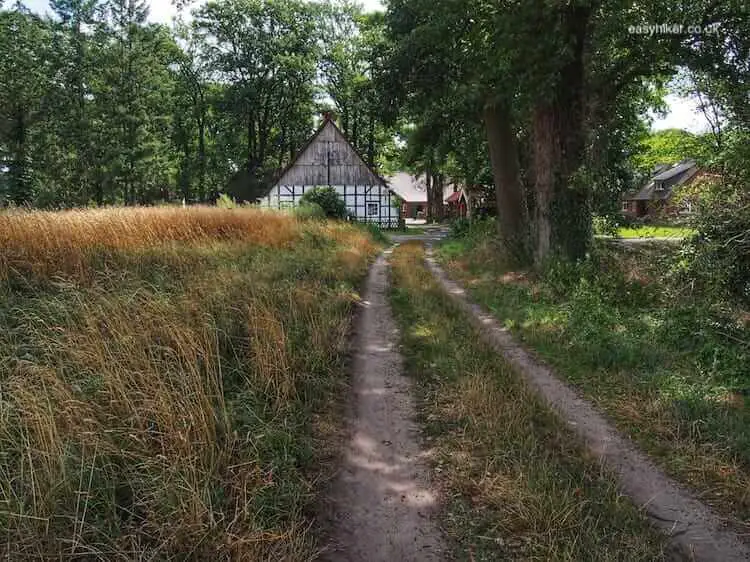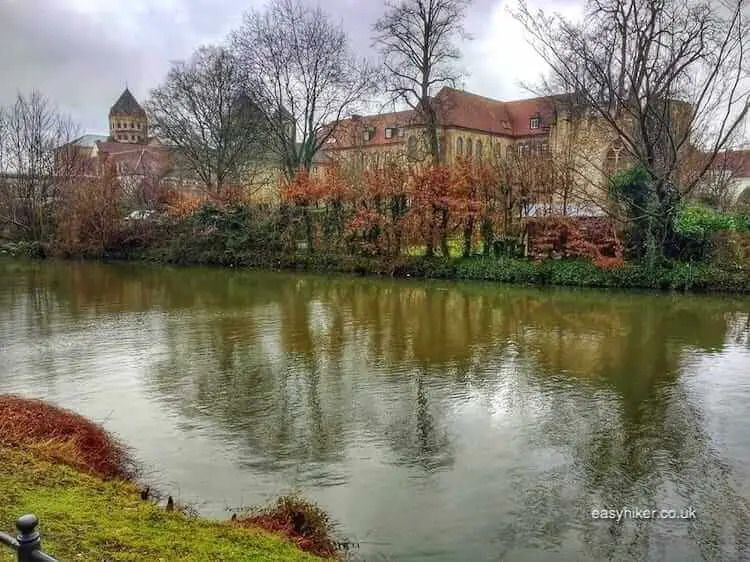Last week, we enjoyed the baroque splendour of the landscaped gardens around the Prinz Moritz trail.
Today, we stay in the same area and (roughly) the same period of German history, moving only a few kilometres up the Lower Rhine Valley and a few decades down the line to the time of the friendship between Prussia’s most flamboyant monarch, Frederick the Great, and the French philosopher Voltaire.
Voltaire visited his mentor several times in this part of the world, the budding Prussian Empire’s western outpost, and the Voltaire Trail (Voltaireweg) from the small town of Bedburg-Hau to Moyland Castle approx. 7 km to the east commemorates these meetings, while info panels along the trail tell you what Voltaire had to say about the local landscape.
Reading these Voltaire Trail panels, it is difficult not to come away with enormous respect for the diplomatic skills of this French Enlightenment writer, historian, and philosopher.
Voltaire, we learn, pointed out that the countryside was “covered with plants like the Champs Elysees”, (yes, and Bedburg-Hau consists of buildings, not entirely unlike Paris), …
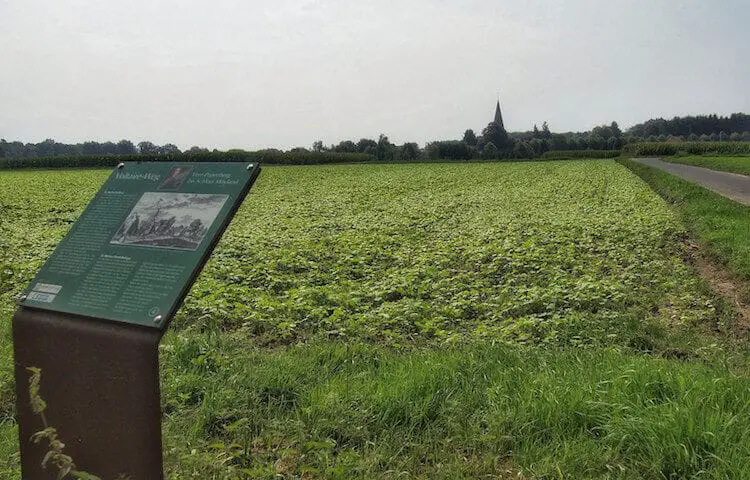
… and he apparently compared the local views “favourably with those of Meudon”, choosing – purposefully, one suspects – a somewhat lower register than comparisons with Notre Dame or Versailles.
One can easily imagine the scene: a load of local honoraries, urging their famous visitor to flatter them and their home region – “well, Monsieur Voltaire, be honest with us: have you got anything like this in France?” I mean: what could he say?
There is, in truth, not much evidence that Voltaire – not as keen a nature lover as his near-contemporary and great antagonist Jean-Jacques Rousseau – ever hiked the entire length of the Voltaire Trail, but the walk is charming enough to stand on its own without such a mantle of historic rank or relevance, from the Loosenhof right at the start, …
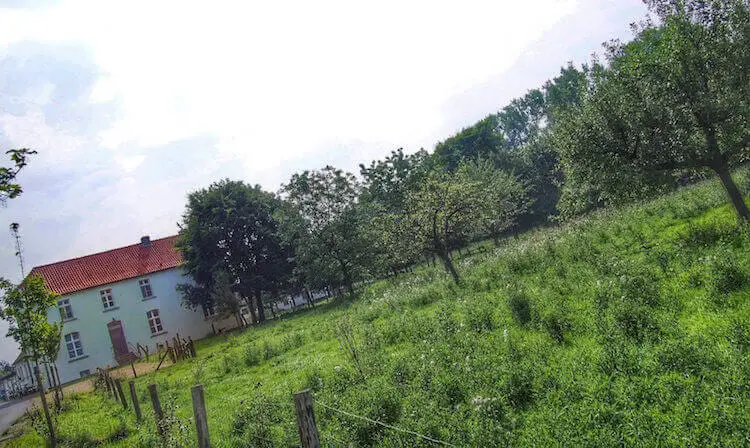
… a picturesque fruit orchard with a 600-year history that is today operated as a “social therapy” farm by the regional government …
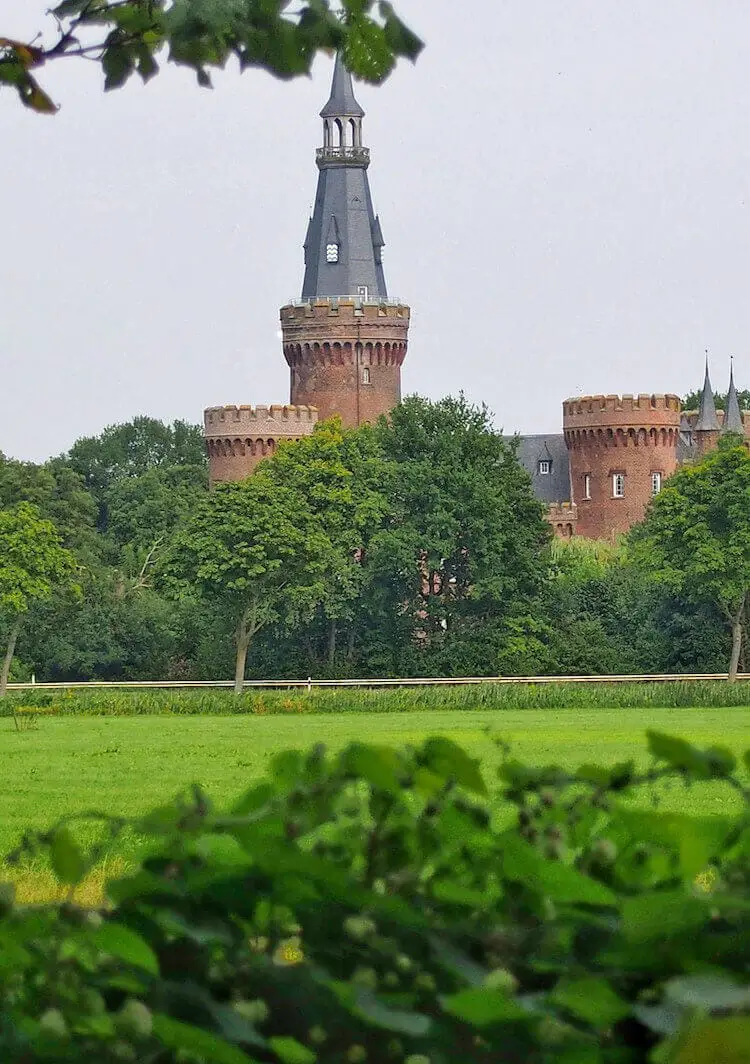
… all the way to Moyland Castle at the end, which houses a modern art museum that features “the world’s largest collection” of works by the conceptual artist Joseph Beuys, a local boy who grew up in near-by Kleve.
Taking up the leitmotiv of last week’s Prinz-Moritz-Weg, the Voltaire Trail is – in its early stages, at least – mainly about water.
Water, however – and this is the difference – that has not been landscaped but left in its natural, wild and swampy state …
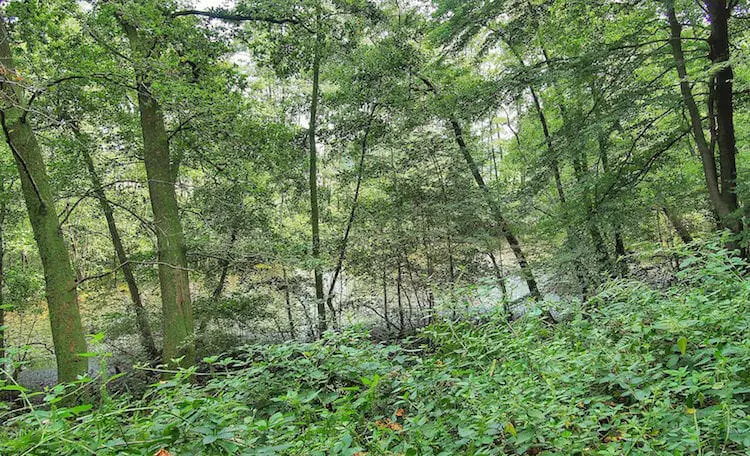
… and touched by human hands not with the purpose of creating a background for baroque garden parties but only to exploit it as a handy resource for fuel (in the form of peat).
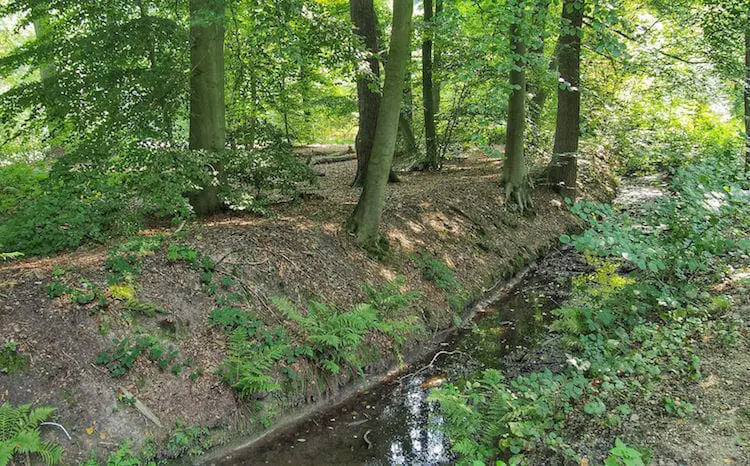
The final stretch of the Voltaire Trail leads through one of Western Germany’s most scenic and atmospheric forests, the so-called Rosendahl Woods, named after a family of landed gentry whose 16th century family seat stands in near-by Bedburg-Hau.
To pass through this forest, the Voltaire Trail – marked “X” (white on a black background) throughout – follows the old postal road between Kleve, the official residence of the local princes, and Moyland Castle where the Prussian kings actually preferred to spend their time.
But many other hiking paths criss-cross the Rosendahl Woods, a popular recreation area for both locals and visitors from the near-by cities of Duisburg and Düsseldorf.
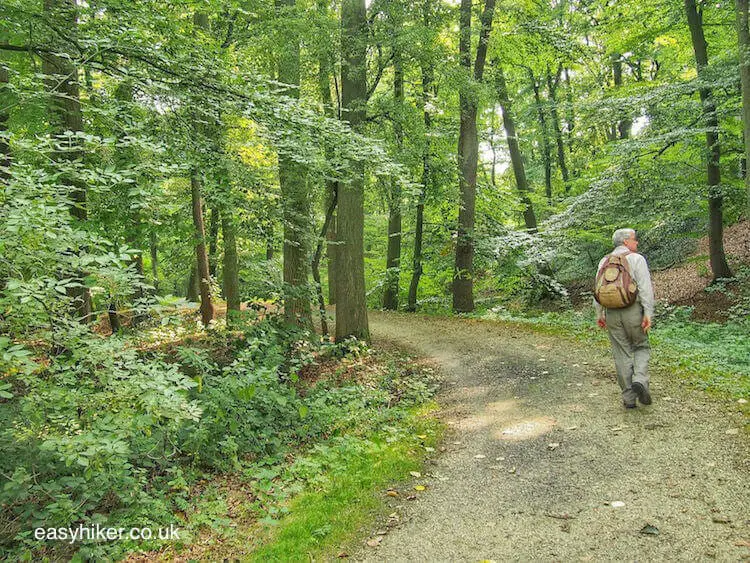
One way of getting to the trailhead of the Voltaire Trail is by simply continuing from the Prinz-Moritzweg (check out our previous post for instructions); the two trails meet at a sporting facility just outside Bedburg-Hau.
Simply cross the railway tracks and turn right after approx. 200 metres into the grounds of the Loosenhof. But you can also join the trail from Bedburg-Hau train station, a stop on the main route from Krefeld to Kleve.
From Bedburg-Hau station, you must walk in a northerly direction through Bahnstrasse, Uedemer Strasse and Waldmannspfad. When you find the markings of the Voltaire Trail, turn right.
Moyland Castle at the end of the trail is a large complex with a museum and a cafeteria, but you will be charged an entrance fee of € 7 p.p. right at the gate.
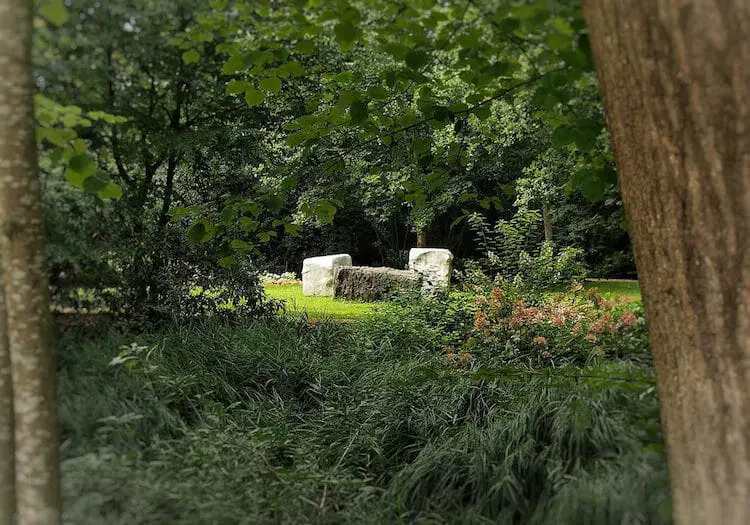
Outside the entrance to the castle, just opposite the austerely graceful 17th century Schlosskirche, a church that was purpose-built for the local Protestant community …
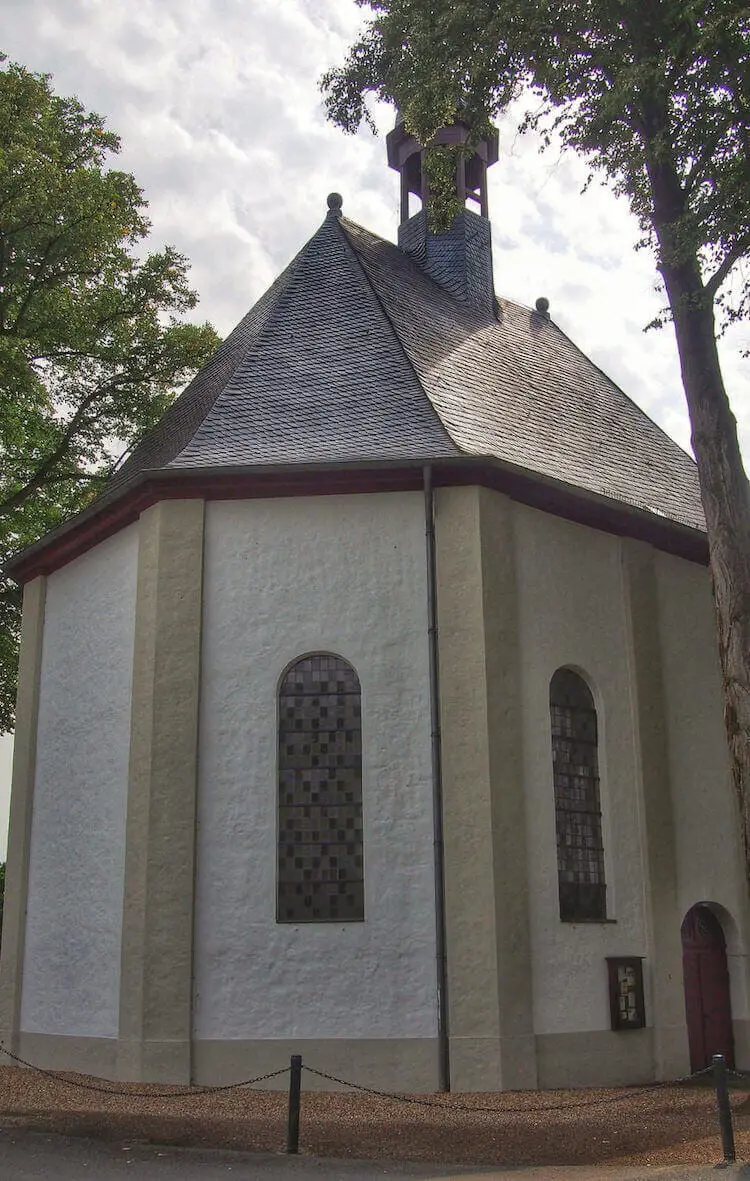
… you will find the bus stop from where line no. 44 will take you hourly to either Kleve or Xanten.

